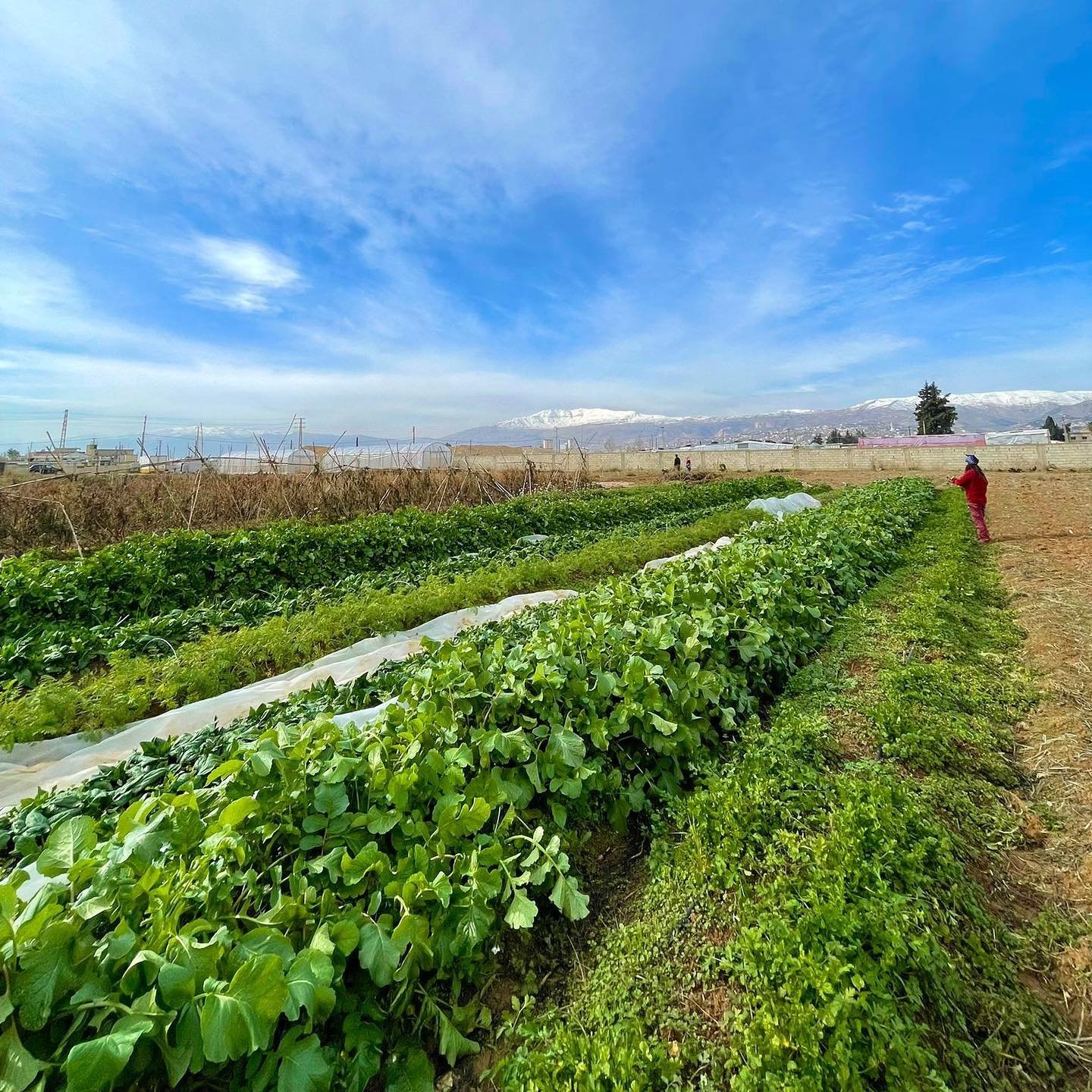
Projects
Farms Not Arms
How can we build and lead a consortium of partners to design a scalable yet localized solution for food security, climate change, and the refugee crisis?
Farms Not Arms is a collective of organizations and individuals who have worked together to design a multi-agricultural, integrated farm design combining regenerative agriculture with low-tech hydroponics to produce 3 times more food in any given space while sequestering carbon in the soil, helping ease the climate crisis.
The first farm is in Bekaa, Lebanon brings together Lebanese and refugees to target food insecurity while learning regenerative agricultural skills. While being a fully operational farm and independent entity, it also serves as a live testing ground and "living lab" that is piloting the FNA design model in order to further iterate it and evolve it into a circular, closed-loop, highly efficient agricultural model.
Project Partners: Agritecture, Bau Land, Protos Studio, Kiba Gateaux, Erica Accari and more
Learning Blocks
How can we build a 21st century certification system that creates a more effective link between education and employment and better helps non-formal education showcase skills?
Learning Blocks is a skills-based education certification system to issue personalized and permanent certificates stored on the blockchain that contain encrypted attachments of students work. We were building this system for refugees with the vision to scale it to alternative and non-formal education providers.
Learning Blocks reached pilot stage with refugees in Jordan and Lebanon and was selected by UNICEF and NetHope as one of the most prominent solutions to help refugees go from learning to earning in June 2019.
Project Team: Jehane Akiki, Natalia Kisielewska, Hoo Koo E Koo, Ghia Zaatari
DigiLit Bootcamp
How can we lay down the foundations of a 21st century education in a refugee setting?
The Digilit Bootcamp is a result of an extensive education strategy on how to provide education in the 21st century given the fast rate of changes in the economy. It focuses on education provision in an underserved setting like that of refugees to ensure that education is equipping them with the right skills to partake in the productive economy and not be left behind. We designed this bootcamp as a means to lay the foundation for 21st century education with 3 sections:
Digital Training, to learn the basic digital skills they would need in any work environment as well ad digital trends that will become commonplace as they grow up
Design Thinking, to target the soft skills of 21st century like critical thinking, problem solving, team work, presentation and more all through group work to create solutions for daily life problems
Art Therapy as a form of Social and Emotional Learning to deal with trauma in an artistic way and equip the mind to be able to learn.
The DigiLit Bootcamp ran in the Summer of 2017 for teenage Syrian refugee girls at the Kayany Foundation's Malala II School in Saadnayel, Bekaa. The students also partook in a women's digital entrepreneurship day at Beirut Digital District and participated in a hackathon by the American University of Beirut, where some of the students were among the winning teams that developed mobile apps.
Project Partners: Kayany Foundation's Malala II School, Edutek, Beirut Art Therapy
The Shatila Collective
How can we help a collective of refugee women artisans learn the necessary digital skillsets to transition from producers to entrepreneurs?
Tight Knit Syria (TKS) is a Canadian non-profit that works with displaced Syrian women and connects their beautifully handmade products to local and international markets.
TKS asked us to help streamline their remote operations by setting up workshops to teach their team of artisan women in Shatila Camp, Lebanon the basic digital skills needed to run a business and operate a supply chain across countries. Learning such skills is crucial to increase their productivity, improve their efficiency, and develop agency in their role in the business.
We sourced laptops from Thaki which were also furbished with educational programs so that they can additionally be used by the TKS Shatila Collective's kids as well.
Project Client and Partners: Tight-Knit Syria, Thaki



